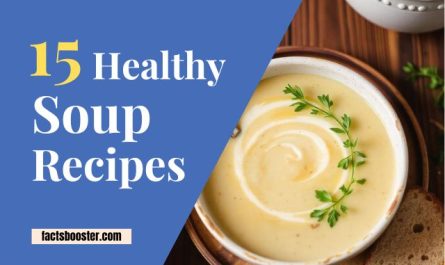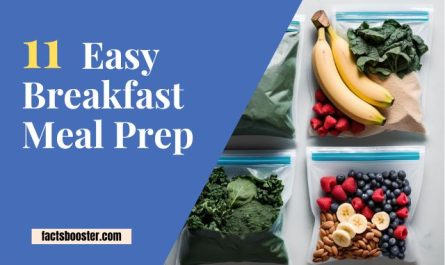If you’re on a quest to build strength or just aiming to maintain a healthy diet, understanding the role of protein is crucial. The question, “What Foods is Highest in Protein?” drives us to explore a variety of high protein food that aligns with our health and fitness goals.
With various protein-rich sources available, it’s paramount to know which ones can best support our muscle building and overall health.
Key Takeaways:
- Identify diverse high-protein foods for different dietary preferences.
- Calculate your daily protein intake needs based on your lifestyle.
- Recognize the risks of overconsumption and the need for a balanced diet.
Why Do We Need Protein?
Why do we need protein? It’s simple: proteins are the building blocks of life. At a cellular level, they repair the wear and tear our bodies go through daily. They’re also crucial for growth and development, playing a key role in the building of muscle, bone, skin, and blood.
A diet rich in high protein food supports our overall health, ensuring that our bodies function optimally. So, whether you’re looking to build muscle or just maintain a healthy lifestyle, your protein intake is something you can’t ignore.
What Foods Is Highest in Protein

As we dive into the heart of our exploration, let’s take a closer look at the world of high-protein food. We’re setting out on a flavorful journey, aiming to uncover the most protein-rich options across a vast array of dietary preferences.
Whether you’re an avid meat-lover, a seafood enthusiast, or a dedicated vegan, this section promises to guide you through an array of choices, ensuring your protein intake is as diverse as it is delicious.
1. Eggs
Imagine starting your day with a powerhouse of nutrition – eggs. Packed with about 6 to 8 grams of high protein, these versatile gems are a fantastic way to fuel your body.
Not only do they help in muscle building and repair, but they also contain essential amino acids your body craves. Easily whip them into an omelet, scramble them for a quick bite, or hard-boil for a portable snack.
Incorporating eggs into your daily meals ensures you’re on track with your protein intake needs, making every bite count towards your health goals.
2. Fish: Ocean’s Protein Treasure
Diving into ocean’s protein treasure, fish emerges as a high protein food essential for anyone looking to increase their protein intake.
From the lean textures of tilapia to the fatty richness of salmon, the variety ensures there’s a fish for every palate. Grilled, baked, or steamed – each method unfolds unique flavors and preserves the nutritional value, making fish a versatile addition to your menu.
Remember, incorporating fish into your diet not only meets your protein needs but also introduces a wave of omega-3 fatty acids essential for heart health.
3. Chicken: The Muscle Builder
Chicken is undisputable in its role as a powerhouse. Loaded with high-quality protein, it’s the go-to for fitness enthusiasts and anyone serious about their health. A lean source, it avoids the fat content found in some other meats, making it a superior choice for those keen on maintaining a balanced diet.
Grilling, baking, or steaming are flavorful yet healthy ways to prepare chicken, preserving its protein content while keeping additional calories at bay.
Read more:
4. Nuts, Seeds
- Almonds: Offering a hearty dose of protein, almonds are perfect for snacking or adding a crunch to your salad.
- Pumpkin Seeds: Packed with protein and essential minerals, they’re a fantastic topping for your morning oatmeal or evening yogurt.
- Chia Seeds: These tiny seeds are a powerhouse of protein and omega-3 fatty acids, great in smoothies or as a pudding.
- Walnuts: Not just high in protein, but also in healthy fats, walnuts are an excellent addition to your diet for overall health.
5. Plant-Based Proteins: Soy Products
Turning the spotlight on vegetarians and vegans, soy products emerge as a powerhouse of high protein. They’re not just an alternative; they’re a necessity in ensuring a well-rounded diet.
From tofu and tempeh to soy milk and edamame, these plant-based proteins are versatile, nourishing, and packed with the protein you need to support muscle growth and overall health. If you’ve been in search of suitable high-protein food, soy products definitively answer your quest.
6. Red Meat
- Rich source of protein: Red meats like beef, lamb, and pork provide a high protein content essential for muscle growth and repair.
- Contains essential nutrients: Beyond protein, red meats offer vital nutrients, including iron, zinc, and B-vitamins, crucial for overall health.
- Consider moderation: While beneficial, consuming red meats in moderation is advised due to potential links with heart disease and other health concerns.
7. Beans
Let’s not forget about beans. Often overshadowed by their flashier counterparts, beans pack a hefty protein punch and stand out as a major player in the nutrient-dense food arena.
For vegetarians, vegans, and even the meat-eaters among us, beans offer a flexible, affordable, and high-protein food option that seamlessly blends into various dishes.
However, while they’re a fantastic source of protein and fiber, it’s essential to balance them with other protein sources to ensure a well-rounded diet. Embrace the versatility and nutritional power of beans to keep your protein intake on point.
8. Milk
Discussing high protein food, milk rightfully earns its spot. Rich in essential nutrients, it’s not just about the calcium. Milk is a significant protein source, offering about 8 grams per cup, integral for muscle repair and growth.
Whether you’re aiming to build strength or maintain a healthy diet, integrating milk can complement your protein intake effectively. Yet, it’s crucial to consider lactose intolerance or dairy sensitivities for some.
So, when you ponder on what foods are highest in protein, remember that milk, with its versatility and nutrient profile, is an excellent choice for many, underscoring the necessity of including varied protein sources in our diets.
How Much Protein Do You Really Need?
Wondering how much protein you really need on a daily basis? It’s not a one-size-fits-all answer. Your protein intake hinges on several factors including your body weight and how active you are.
Generally speaking, if you lead a more sedentary lifestyle, protein needs might be lower. However, for those of you hitting the gym regularly or engaging in physical labor, your body craves more protein for repair and growth.
A ballpark figure is 0.8 grams of protein per kilogram of body weight for an average adult. But remember, these numbers can flex dramatically based on your daily activities and overall health.
The Risks of Overconsumption
Opting for high protein food is key, but crossing the line into overconsumption territory can bring its own set of challenges. Your body thrives on balance, and when it comes to protein intake, there’s such a thing as too much of a good thing.
Consuming excessive amounts of protein, especially from animal sources, may increase the risk of kidney damage, liver issues, and in some cases, may contribute to heart disease and calcium loss. So, how much protein a day do you really need?
The general guideline is 0.8 grams of protein per kilogram of body weight. Pushing far beyond your need for protein might not be the muscle-building magic trick you thought it was.
Balance and Variety
Embarking on a journey to increase your protein intake? Remember, the magic word here is balance. Sure, knowing what foods are highest in protein can transform your diet and your muscle-building journey.
But here’s the kicker: it’s not just about piling up on high protein foods like chicken, fish, or eggs. Think about mixing it up with plant-based stars like beans and soy products. Variety is not just the spice of life; it ensures you’re embracing a full spectrum of nutrients.
So, as you calculate your protein intake, why not make each meal an adventure? Introduce a colorful array of proteins, and you’ll discover nutrition and enjoyment on your plate every day.
And hey, knowing how much protein you really need prevents you from overdoing it, keeping those risks neatly in check.
Bottom Line
In summary, striking the right balance in your protein intake is pivotal. Foods high in protein, including eggs, fish, chicken, soy products, nuts, seeds, red meat, beans, tempeh, and milk, play a critical role in nourishing your body and facilitating muscle growth.
Remember, while meeting your daily protein needs is essential, it’s equally important to enjoy a varied diet that caters to all your nutritional demands. Stay mindful of how much protein you consume to harness its benefits without overstepping the mark.
References:
1. PubMed Central, 2023 Feb 23, “Composition of Nuts and Their Potential Health Benefits—An Overview” (1)
2. Proc Nutr Soc, 2016 Aug, “The role of red meat in the diet: nutrition and health benefits” (2)
3. Compr Rev Food Sci Food Saf, 2021 Mar, “Tempeh: A semicentennial review on its health benefits, fermentation, safety, processing, sustainability, and affordability” (3)
4. Nutr Rev, 2022 Apr 8, “Fish protein hydrolysates as a health-promoting ingredient-recent update” (4)


